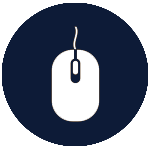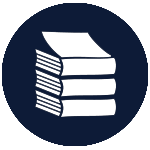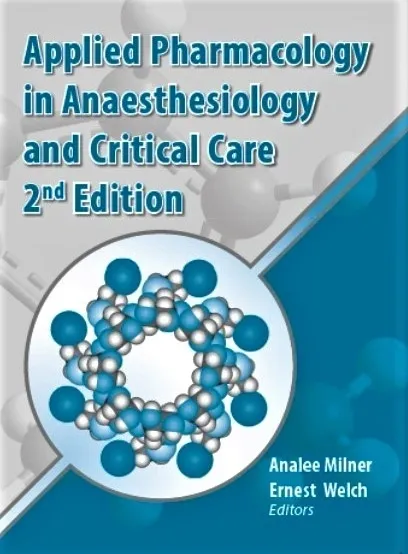
 Titles hyperlinked in blue, can be accessed by clicking the heading.
Titles hyperlinked in blue, can be accessed by clicking the heading.
 Titles without a hyperlink are not currently available online.
Titles without a hyperlink are not currently available online.
Guide index
 CICM > CICM Library > First part exams
CICM > CICM Library > First part exams
How to access e-resources
 Your CICM Member Portal Username and Password is required to access ANZCA Library e-resources. Please ensure that you use the CICM Members Portal login (scroll down) and not the MDP Login.
Your CICM Member Portal Username and Password is required to access ANZCA Library e-resources. Please ensure that you use the CICM Members Portal login (scroll down) and not the MDP Login.
 Having trouble logging into e-resources? Try emptying your browser cache, closing and reopening your browser, and trying again.
Having trouble logging into e-resources? Try emptying your browser cache, closing and reopening your browser, and trying again.
 Forgotten your CICM Member Portal password? Try resetting your password
Forgotten your CICM Member Portal password? Try resetting your password
 Want to make recommend-ations, report issues, or to give general feedback? Contact CICM
Want to make recommend-ations, report issues, or to give general feedback? Contact CICM
 Journals/articles access issues: There is currently a widespread issue impacting numerous CICM journal/article resource links. Many journal/article links are failing to resolve properly during authentication, causing jumpstart errors.
Journals/articles access issues: There is currently a widespread issue impacting numerous CICM journal/article resource links. Many journal/article links are failing to resolve properly during authentication, causing jumpstart errors.
If a link fails to resolve properly during authentication, close the newly opened tab and click the original link again.
 Applied Pharmacology in Anaesthesiology and Critical Care, 2e
by
This comprehensive book guides the reader through the complexity of pharmacology using an easy to follow bullet system with tables, clinical examples, tips on various agents and cautions highlighted in easy to reference boxes within each chapter. The chapters are divided into related topics in such a way as to cover the basic theory, relevant physiology and specific pharmacology necessary to get to grips with a particular area. Written by anaesthesiologist/ intensivists who are all respected teachers and bring a wealth of clinical experience to the understanding of each topic. Fulfils the need for a clinically relevant pharmacology text that focuses not only on preparation for the anaesthesia primary and final examinations, the diploma in anaesthesia, fellowships in intensive care and masters in pharmacology, but can also be used as a reference for the practicing anaesthesiologist and intensivist.
Applied Pharmacology in Anaesthesiology and Critical Care, 2e
by
This comprehensive book guides the reader through the complexity of pharmacology using an easy to follow bullet system with tables, clinical examples, tips on various agents and cautions highlighted in easy to reference boxes within each chapter. The chapters are divided into related topics in such a way as to cover the basic theory, relevant physiology and specific pharmacology necessary to get to grips with a particular area. Written by anaesthesiologist/ intensivists who are all respected teachers and bring a wealth of clinical experience to the understanding of each topic. Fulfils the need for a clinically relevant pharmacology text that focuses not only on preparation for the anaesthesia primary and final examinations, the diploma in anaesthesia, fellowships in intensive care and masters in pharmacology, but can also be used as a reference for the practicing anaesthesiologist and intensivist.



 Therapeutic Guidelines: Antibiotic [CICM]
by
Apart from major textbooks of infectious disease, there have been few books published specifically on guidelines related to antibiotics. This text provides a well established set of clinical practice guidelines on antibiotics. This text is well researched, concise and consistent in its presentation.
Therapeutic Guidelines: Antibiotic [CICM]
by
Apart from major textbooks of infectious disease, there have been few books published specifically on guidelines related to antibiotics. This text provides a well established set of clinical practice guidelines on antibiotics. This text is well researched, concise and consistent in its presentation.
 Miller's Anesthesia, 10e [CICM]
by
Offering up-to-date coverage of everything from historical and international perspectives to basic science and today’s clinical practice, Miller's Anesthesia 10e, remains the #1 reference and trusted learning resource for practitioners and trainees in this complex field. Dr. Michael Gropper leads a team of expert editors and contributing authors who provide current information on the technical, scientific, and clinical issues you face each day—whether you’re managing a challenging patient care situation, preparing for the boards, or studying for recertification.
Miller's Anesthesia, 10e [CICM]
by
Offering up-to-date coverage of everything from historical and international perspectives to basic science and today’s clinical practice, Miller's Anesthesia 10e, remains the #1 reference and trusted learning resource for practitioners and trainees in this complex field. Dr. Michael Gropper leads a team of expert editors and contributing authors who provide current information on the technical, scientific, and clinical issues you face each day—whether you’re managing a challenging patient care situation, preparing for the boards, or studying for recertification.
 Stoelting's Pharmacology and Physiology in Anesthetic Practice, 6e [CICM]
by
Stoelting's Pharmacology and Physiology in Anesthetic Practice provides trainees and practitioners an in-depth but concise presentation of those aspects of pharmacology and physiology that are relevant either directly or indirectly to the perioperative anaesthetic management of patients. This is a difficult topic but is foundational to the practice of anaesthesia and trainees face questions on it in their in-training and qualifying exams.
Stoelting's Pharmacology and Physiology in Anesthetic Practice, 6e [CICM]
by
Stoelting's Pharmacology and Physiology in Anesthetic Practice provides trainees and practitioners an in-depth but concise presentation of those aspects of pharmacology and physiology that are relevant either directly or indirectly to the perioperative anaesthetic management of patients. This is a difficult topic but is foundational to the practice of anaesthesia and trainees face questions on it in their in-training and qualifying exams.
e-Books
Whilst the titles below are not on the recommended reading list, they may be helpful in preparing for your exam.
 Key Trials in Intensive Care Medicine: Passing the Final FFICM [CICM]
by
This essential guide encompasses over 160 pivotal papers critical for doctors preparing for postgraduate exams in intensive care, interviews, or commencing an intensive care rotation. Chosen for their educational merit and significant influence on intensive care medicine, these key trials, studies, and meta-analyses are distilled into succinct, easy-to-read summaries. The guide steers clear of intricate numerical details and statistical analyses, concentrating instead on the core information necessary to comprehend the significance of these influential papers. Tailored specifically for the OSCE and SOE components of exams like the Final FFICM and EDIC, it provides concise summaries and key results, focusing on the most crucial information for exam success. Serving as a resource that underpins the evidence base of contemporary intensive care clinical practice, these summaries are an indispensable tool for both exam preparation and ongoing professional development in intensive care medicine.
Key Trials in Intensive Care Medicine: Passing the Final FFICM [CICM]
by
This essential guide encompasses over 160 pivotal papers critical for doctors preparing for postgraduate exams in intensive care, interviews, or commencing an intensive care rotation. Chosen for their educational merit and significant influence on intensive care medicine, these key trials, studies, and meta-analyses are distilled into succinct, easy-to-read summaries. The guide steers clear of intricate numerical details and statistical analyses, concentrating instead on the core information necessary to comprehend the significance of these influential papers. Tailored specifically for the OSCE and SOE components of exams like the Final FFICM and EDIC, it provides concise summaries and key results, focusing on the most crucial information for exam success. Serving as a resource that underpins the evidence base of contemporary intensive care clinical practice, these summaries are an indispensable tool for both exam preparation and ongoing professional development in intensive care medicine.
 Passing the Final FFICM: High-Yield Facts for the MCQ & OSCE Exams [CICM]
by
This innovative resource serves as a fusion of an MCQ guide and a textbook, providing essential content for postgraduate trainees gearing up for the FFICM Final exam, a vital part of the CCT in Intensive Care Medicine. Crafted to meet the unique requirements of the MCQ while also addressing the necessity for concise, well-structured responses in the OSCE, this book prioritises quick topic transitions, delivering focused, streamlined learning across a range of ICM topics. Its uniqueness lies in its unorthodox structure; rather than having a conventional table of contents, it gives you the freedom to start your learning adventure from any page. Each of the 1,400 facts is structured as a question, reflecting the format of both exams. Answers are conveniently positioned just below, eliminating the need for constant page-flipping. The material is carefully curated to cover the breadth of the ICM curriculum, weaving in valuable insights from the author's and colleagues' exam experiences. Random questions replicate the unpredictability of both exams and enhance the reader's capacity to swiftly switch between topics during self-assessment. This balances knowledge application and active recall while using memory-enhancing methods like self-quizzing, chunking, and spaced repetition.
Passing the Final FFICM: High-Yield Facts for the MCQ & OSCE Exams [CICM]
by
This innovative resource serves as a fusion of an MCQ guide and a textbook, providing essential content for postgraduate trainees gearing up for the FFICM Final exam, a vital part of the CCT in Intensive Care Medicine. Crafted to meet the unique requirements of the MCQ while also addressing the necessity for concise, well-structured responses in the OSCE, this book prioritises quick topic transitions, delivering focused, streamlined learning across a range of ICM topics. Its uniqueness lies in its unorthodox structure; rather than having a conventional table of contents, it gives you the freedom to start your learning adventure from any page. Each of the 1,400 facts is structured as a question, reflecting the format of both exams. Answers are conveniently positioned just below, eliminating the need for constant page-flipping. The material is carefully curated to cover the breadth of the ICM curriculum, weaving in valuable insights from the author's and colleagues' exam experiences. Random questions replicate the unpredictability of both exams and enhance the reader's capacity to swiftly switch between topics during self-assessment. This balances knowledge application and active recall while using memory-enhancing methods like self-quizzing, chunking, and spaced repetition.
Websites

